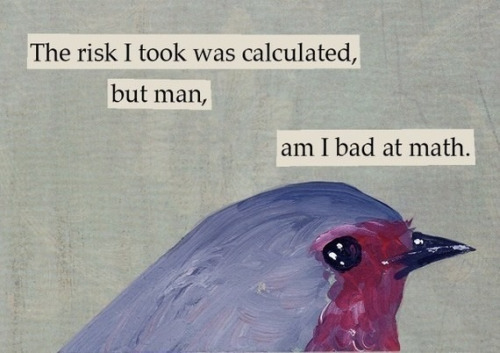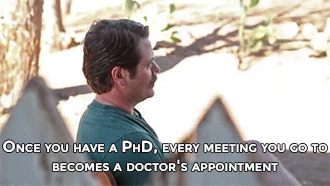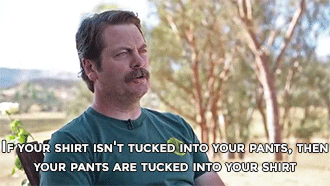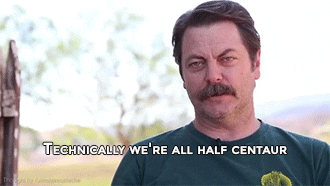Should've Uploaded It Some Time Earlier, Sorry Folks
Should've uploaded it some time earlier, sorry folks
More Posts from Bernatk and Others
a wonderful event in the life of a truly wonderful YouTuber :)
I’ve been a Christian my entire life, but wasn’t baptized as a child. That changed last night, and I feel incredibly blessed and humbled.
The Oscars & La La Land
Many passionate people were worried this year that Damian Chazelle’s La La Land would steal the award of Best Picture from the daring project, titled Moonlight. To their great avail, it did not happen but I was rather confused by the arguments they presented as ground for Moonlight to win. Surprisingly it never came up that it would be simply a quality film, worthy in its own right to win. The main reason was its theme.
While I myself am decidedly left-leaning, for me the Academy Awards are about excellence in film. Yet, I see a multitude of people, sharing my convictions, being completely biased toward or against certain artistic creations based on said convictions. For example, a loud outlet of ideas and opinions, Vox, made a video, which highlighted that the current voting system of the Oscars favors the films that have the highest general esteem, as opposed to other ones, which may be polarizing but have the most individual votes. While either way would be legitimate and fine, the preferential voting system might be a bit more precisely geared toward rightly selecting victors. The basic concept is key: we are looking for the best film of the year. If we get a polarizing winner, there will be a powerful minority--even more, since we’re not having a choice of 2 pieces but of multiple, so probably a majority that opposes the winning movie. Thus this system of selection can prove completely erroneous, since the largest minority deems a movie good, while the majority may say it is actually a product of poor filmmaking.
Now I am happy for Moonlight to have won the award but it has to be absolutely clear what its victory means: it is the best picture of the year from an artistic-commercial standpoint. As trivial as it sounds, most advocates of this film called it worthy and important for political, or human rights reasons. It seems progressive to award movies with politically progressive themes but Moonlight’s excellence cannot lie in the skin color of its actors. It can win awards for that but not by the Academy but by organizations or political agents.
In fact I posit a film’s political merits are unimportant details, when it comes to the Oscars. And if for many more decades we wouldn’t see black crews getting the award for best picture, it wouldn’t matter from the perspective of the legitimacy of the Academy or the prestige of the prize. It would and should mean that there are no good enough films made about this subject matter. Moonlight was this year’s best picture, according to the Academy, for its cinematic merits. Even so, were the case different, had they won because of the theme of the lives of people of color, their achievement would be nullified--their Oscar would become meaningless.
In my opinion La La Land was a rightful contender. The fact that it dealt with life in Hollywood was not a red flag of being Oscar bait. The truth of the matter is, most mainstream directors are actually passionate about the industry and the place, they wake up with it on their minds and go to bed with it--it permeates their everyday, they get their joy from it, even their bread from it.
Damian Chazelle is well-known for his love of films akin to his own creation, so its his genuine love-child. It, in a way, goes against Hollywood shallowness by depleting the idea of easy living presented by classic musicals and generic rom-coms in a witty, satirical way. It is an achievement. But that is just one facet of the movie, designed for people who breathe that in daily. On a deeper level there is a very unique, yet old idea explained to us in great fashion: the dreams and passions define people’s personalities.
Its truth can be argued but it hit a chord with many a viewers. The general expectation toward any musical is that it should be light and alleviating from the pains of the real world. In La La Land we get just the opposite: we have to face our internal conflicts and routine compromises that corrupt us and make our lives mediocre. Of course, there is a great narrative balance: we get something to learn and we get a little escapade. The profound idea and conflict is our lesson and the shimmering sets, combined with the ghastly beauty of the music is our break from reality.
La La Land reverberates the old American way of grand gestures and grandiose ambitions. It slowly died out from the everydays in the ‘60s but they are surfacing again in the works of this writer-director.
Finally, I cannot end without praising La La Land’s ending. There are almost as many interpretations as there were audience members. One can easily find convincing and intelligent opinions, which certainly seem to coincide with the creator’s vision. However, returning to the underlying concept of the film I think the strongest side of it is how it shows the characters’ humanity, idealized but torn down to the ruins.
The most obvious thought about the final sequence is that “it should have been” their story. At the end of the movie we have a lot of sympathy toward the protagonists and we are greatly saddened by the failure of their relationship. However, we should try to step outside from our perspectives, after all, that is what immersion is all about... From the characters’ point of view we find the same summary of “it should have been”, but it means more than from the mouth of someone sitting in a movie theater. It means “I have erred, I should have done it differently.” I think this is a great addition to the already intriguing basic concept.
The main characters have cultivated their dreams and passions and thus their personalities have become the amazing thing they always wanted--it is inspirational, yet not unrealistic. It is actually a viable route in life to develop ourselves in fields we are passionate about, people do not lose their fortunes because of their dreams or passions but because of external hardships or internal flaws. But this inspiring journey is contrasted with a personal failure. Love is undeniably an important part of life--it is argued against only by the cynics. On the forefront of human happiness we find both personal growth and love. These both determine our happiness and it is not a zero sum game, where we must choose one of the two. But it is true that we can be successful at one and lose tragically on the other.
Fitzgerald and Class
I talked to a friend of mine about Hamlet yesterday. He hasn’t read it (not a literary man), so he asked me about its merits. I told him a little bit about this, a little bit about that and then I mentioned how the protagonist is considered to be the first modern man. I said this is probably one of the drama’s heaviest assets, as it’s remained relevant for centuries, to which my friend replied, “Yeah, classics sorta tend to stand the test of time. Suppose that’s why they’re, you know, classics.”
Coming from an art-novice it has the potential of being no more than a piece of conventional wisdom. Perhaps it really isn’t more than a common place but it made me wonder. I’ve had this thought for quite a while now that Fitzgerald was ahead of his time a great deal.
In his works This Side of Paradise and Beautiful and the Damned he wrote quite a few dialogues, where intellectual, authoritative characters contemplate thinking methods and philosophies but they all transcended the early twentieth century, as they almost always reached their climaxes in settling with critical theories.
Oh and he did it with such ease and elegance. Fitzgerald embodied what contemporary thinkers and artists want to become and he did it without ever coming off as artificial or fake. Fitzgerald’s works are classics because in them there are ideas, which were not borne by the time or the general opinion but of an unparalleled artistic mind.
Dear Hank. As I was reading, I had a revelation: without the little voice in your head, you couldn't read, couldn't think, etc. Do you know how to explain that little voice?? Am I hearing my own voice, but in my head? If so, do toddlers have that voice in their head when processing information? How is this little voice generated? I confused myself asking these questions, so I'm not sure that I've fully gotten what I've asked across. But it mostly is: what is this voice and how did it get there?
The little voice is a construction your mind uses to analyze itself and the world. The little voice saying all of its little words is the culmination of billions of years of evolution and hundreds of thousands of years of culture. The little voice is both you and the thing that created you. No one understands the little voice. It’s probably best not to think too much about it.
Noah vs Christians
My political philosophy professor once said that philosophical texts argue against something. I originally intended to critique Darren Aronofsky's Noah but I've been overwhelmed by the many unjust (well, in some cases) reviews. So what I'm writing right now will not be a crystal-clear stand-alone critique but it will be also an argument against others.
I will begin with the harshest criticism that I've heard so far: It is a falsification of he biblical Noah story. It was actually a bit of a surprise to me because I am a christian myself and it never occured to me. What must be observed is that it is a dramatization, which means making something into a drama. A drama is a piece of art, like a painting or an opera. If the crucifixion is painted, does it falsify the Bible by the characters not looking exactly the same as they actually looked? No. If Noah is a dramatization, one must look at it as an independent artistic feat, which in no way attempts to replace, say, the teachings of the Bible. Someone said to me that those, who don't have a basic knowledge or understanding of the Noah story, will watch Aronofsky's work and think that it's the Bible. Well, it's problematic. I can't imagine this becoming a thing. This isn't a hundred percent true, of course, so there might be people, who would fall under the impression that it is a true depiction and it is, of course, acceptable to advertise that it actually isn't but nothing further comes from this, like saying that it is actively against the Bible. In the other hand, this person did not consider how the christians, who think like him, will miss the actual merits of the film, while strongly concentrating on their preconcieved fears.
There was also the idea that the Bible's Noah was a missionary and he tried to actually save everyone from dying, instead of deliberately keeping them out of the ark. They argued that it is written in the New Testament that God patiently waited for the people who were otherwise condemned to death (1 Peter 3:20); and that Noah was a preacher of righteousness (2 Peter 2:5). It is a misunderstanding to think that these things go against the movie. They certainly aren't in focus because Aronofsky had other things he wanted to communicate. But the film's depiction of God isn't essentially untrue to this. Christianity's chief principle is that life on earth is not the complete life but instead, we have an eternal perspective. The Bible's truth is also about more than the truth that a flood will come: it is about God and his love for humanity. If we marry these two together we will see that Noah's missionary work was to save the souls of the poeple of his time, much rather than convincing them that they will be killed by water if they persist that they keep out from his ark. So, this aspect of the Noah story isn't represented, however, if people turned to God, gave up their wicked ways and were truly converted, even Aronofsky's Noah wouldn't have kept them out of the ark, even so, the whole deluge would probably have been cancelled.
Another criticism that I've heard was not unique to christians, even secular voices said this: In the movie, people are subordinate to nature. Noah seems to think the same and the bad guy, Tubalcain, says, what seems to be the modern approach, and it looks a bit like judgment of modern people because of how much they neglect their environment. To me it was much more like Noah had this inner conflict whether or not God wants mankind to continue existing but he never even entertained the thought that hierarchically the animals and plants would be superior to mankind. The animals seemed to have preserved the right to live through not being corrupted, on the contrary it doesn't equal being more valuable. What gives ground to this view is that Noah understands that he has a responsibility toward the nature. He should serve the animals but not be their servant or slave, much rather being a true master through caring and valuing them. Sadly, this is such an alien or radical concept that people tend to feel offended by it and feel that they are treated inferior to animals.
I heard something else, what really seemed baseless to me: Female characters are depicted in the light of the modern feminist culture, instead of what was present at that age. This argument was a real surprise because the first thing I said, while leaving the cinema was that in this movie the female characters were pretty traditional. Others argued that the way Noah's wife "told him off" would have been unimaginable at that time, since if the man says they cut down the wife's children, the wife will have her own thoughts, disagreeing with the man's decision but they will keep silent and watch he man deliver his will. Well, the first consideration we ought to make is: how long ago did Noah live? Very long ago but who can tell exactly? Nobody can. But someone said to me that the same system existed as in Abraham's time, since Noah's family was which started civilization again and so culture originates from them and Abraham lived in an early culture. This is poor reasoning because theologians may know quite a lot about a certain part of history but since every civilization comes from Noah and his descendants, so do older ones, like China. Abraham lived about 4000 years ago, whereas China started its career approximately 5000 years ago (these aren't accurate numbers, I'm only trying to give a sense about which one is the older). So to have the right to say that this or that was traditional in Noah's time requires thorough understanding of all of the ancient cultures, which the creators of this argument lack (I lack it about equally as much). We might think that hierarchical traditions precede egalitarian ones, while in China there have been egalitarian communities a lot earlier than the philosophy would have been borne with John Rawls in the 20th century. Of course, there has always been a hierarchical tradition in ancient China, too, my point is only that certain social systems seem to appear after a certain chronology preceding it and it's just misleading. Having made these precautions, I will proceed to my last argument against this line of reasoning. As Noah's wife even tells Noah, she stuck with him through everything, even through the annihilation of everyone on earth. She did as he has said and she helped him through hell without really ever going against him in words or in actions. So she never told Noah off. But when she says that she will abandon him, it is not that she stands up and starts a new family, or casts Noah out. She actually pledges her allegiance to Shem and his new family, so the authority that Noah used to have as the patriarch, is being withdrawn by the family, which' trust formerly constituted it.
There was a secular argument, which really confused me. Someone said that Aronofsky usually makes his characters suffer from a sort of obsession in his films and Noah's obsession is obeying God's orders. While I understand what this argument is about, I still find it overall confusing. Nobody can have this obsession because God gives wisdom and shows the way on which to walk in every field of life, ergo whoever is obsessed with God is obsessed with everything and that is not an obsession. In Noah's particular case he is exclusively focusing on what mission God has given him. He builds up the ark, he gives up human life on earth but eventually walks back on his decision. This can seem like having an obsession, then finally getting rid of it, still, I believe it is a wrong inerpretation. First, we see what happens, when Noah follows his vision: everything goes well and everything is justified by God, he always receives what is necessary for continuing. Then, at one point, Noah is going out to find wives for his sons and then he sees the true wickedness of humanity and that is what implants the idea that all the people should die on earth, including his own family. But this isn't God's message, it is Noah's own idea because he is afraid of the bad that's inside of everyone's heart. In the Bible we get to see that Noah's a righteous person and his heart is clean but it is, once more, a dramatization, and he finds himself equally evil. And though it is true that there was evil in Noah and all his family, he was still saved. Why Noah is trying to get an end to humanity is that he himself judges his own race, just like God has done formerly. We see the consequences of Noah's judgment, not the Lord's in it. Well, the Bible is not going into details of this sort but there never seems to be the same thing, so this is Aronofsky's addition. It is an ineresting thought and worth meditating on but I think it's quite clear that Noah was not really obsessed but actually conflicted.
The part where I "argue against" ends here. I will go on, though without opposing ideas this time.
What I found very profound was Tubalcain's inner conflict. He knew about the existence of the Creator but he lost contact with him, he has probably never had it. From the story of Pentecost we have learned that the Holy Spirit was sent to be the mediator between God and mankind only after that event and so having connection with God has been very different before. Tubalcain's in-film problems probably originate from the fact that apart from Noah, nobody had that connection, but since Tubalcain and his contemporaries were not long after Eden, where Adam and Eve had a daily and personal connection with God, they somehow craved it. There is a certain ambivalence in this because even though he has an honest desire to reconnect with the Creator he still is evil and he wouldn't think for a second of following God. Tubalcain thinks of the Almighty as equal but men aren't equal with God. He refuses the proud and accepts the humble. Noah is humble and it doesn't mean he would be weak or stupid, since he is the only righteous person in the whole world, which is quite an achievement. But returning to Tubalcain, I find it ingenius that Aronofsky made this attempt to explore the depths of feeling neglected or denied by God.
The last thing that I'd like to mention is the montage of murders: Showing people of different ages killing each other by different means, the people being only dark silhouttes before the red background. Aronofsky was truly creative with this one but there's more to it than the mere spectacle. First of all, it is in the contex of Noah's tale of the creation of the world, so Noah is reasoning with it against the continuation of the existence of men. But as we see that killing is present through all the ages, not exclusively in the ones that preceded Noah, is alarming. Even in the Bible, it is written after the deluge ended that the heart of humans is filled with evil. The very reason why the total population of earth has been annihilated ultimately persists. This is actually why the story of Noah matters so much: the crimes, for which once everyone was killed, are still present, yet we live. This doesn't make much sense in itself. Not at all, unless you read the whole Bible and you read about Jesus, who died for us. This is a brilliant thing, something that only God could think of.
I mostly write. Read at your leisure but remember that my posts are usually produced half-asleep and if you confront me for anything that came from me I will be surprisingly fierce and unforeseeably collected. Although I hope we will agree and you will have a good time.
213 posts









